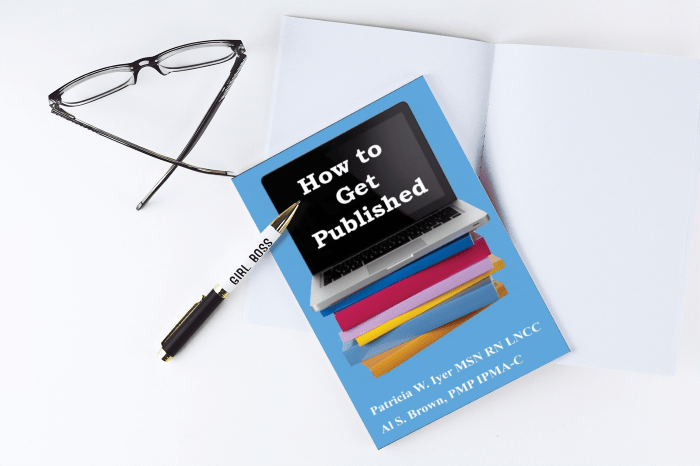
Writing a book teaches you about your fears and habits. You quickly learn why people ask, “Why is writing a book so hard?”
Which of these scenarios best describes you?
Are you a self-starter or a procrastinator?
Is this you?
You wake up refreshed to start your day and can’t wait to sit down to write another chapter (or four!) of your latest book. You adore the writing process and can easily enter your “zone” where time just stands still and your fingers move like the wind across the keyboard.
Or is this you?
You wake up refreshed to start your day but you do everything else on your to-do list first instead of writing a chapter of the book that you know will boost your business. Procrastination is your friend and the “reasons” you give yourself for not writing are simply excuses.
A Business Card on Steroids
I like to think of a book as a business card on steroids. It provides you with increased authority and visibility. People throw business cards in a drawer or a box but they do not throw a book in the same places.
Writing a book is certainly a great way to boost your credibility, increase your name recognition, and increase your profits but it’s also a mirror we can use to deeply examine our greatest fears and work habits.
If writing a book were easy, everyone would be published. Acknowledging and understanding these fears and habits can greatly improve the writing process which, in turn, will make life much easier when you decide to write your next book.
Although 80% of Americans believe they have a book inside them, only a tiny percentage will write it. And there is a distressing number of books that are unfinished because of fear and procrastination, not to mention perfectionism. All these factors make writing a book so hard.
Why don’t you start or finish your book?

1. Examine your work habits.
Are you a procrastinator or a “get it done person?
Are you an early morning person or night owl?
Can you work with music or podcasts playing in the background or do you need total silence? (I love to write to soft music.)
Every writer has a different method of working and you might just discover something new about yourself during this process. Maybe you prefer nature sounds or white noise as opposed to music with lyrics. Or maybe you can focus better in a noisy environment instead of in complete silence. No matter what your preferences, use those to your advantage to be more productive.
2. Discover your fears about the writing process so that you address your concerns why is writing a book so hard.
Do you dread that blank page staring back at you?
Do you fear hearing negative feedback or reviews?
Do you fear hiring an editor only to get your manuscript back heavily marked up or changed considerably?
Remember that even big-name authors begin with a blank page and editors who changed their words. (Read Stephen King’s book On Writing. You’ll realize quite a bit about the craft of writing by peeking inside his mind.) Start your manuscript with a chapter outline and remember that you’re paying an editor good money to make your book its best.
3. Analyze how disciplined you are when it comes to writing.
There’s no right or wrong method here but knowing if you can work in the zone for hours on end or if you get easily distracted and need to take breaks makes planning your day much easier.
When you need to take breaks, incorporate the Pomodoro method into your day. Simply set a timer for 25 minutes and focus on your writing until the timer goes off. Take a 10-minute break, then get back to writing for another 25 minutes. It’s a simple method but you’ll be amazed at how focused you’ll be during those writing sessions.
If 25 minutes too short, lengthen your sessions to an hour, but avoid sitting for long periods. Your mind will start to get numb. At least mine does.
Walk around, clean up, put dishes away, make the beds, get the email. The break in routine makes you refreshed when you return to work. The break reduces the risk that writing a book is so hard.
4. Is writing your passion or do you fear this will be a wasted effort?

What if you don’t make sales or the response from your audience isn’t as glowing as you had hoped? This is a valid fear, especially if you’re depending on this book to increase your earnings, but you’ll be prepared to conquer this fear by doing market research prior to writing the first page.
Is this book topic something your market needs and wants?
Can you offer a different spin on this topic that others may have already written about?
Putting time into this analysis is critical.
Whether you feel a passion for writing or you’re certain this will be your only book, you’ll always benefit by doing research.
5. Acknowledge your insecurities and admit your weaknesses.
No one is perfect nor can you be an expert in everything. So if anything about the writing process or the marketing activities scares you, embrace that fear and either conquer it or hire an expert to help you through it. Under this type of spotlight, you may be surprised at what makes your knees shake and what you can handle like a champ. Just don’t let these insecurities sideline your book.
As you can see, writing a book is a wonderful self-discovery tool in addition to a business-builder. Take these discoveries and work with them during this process; you’ll only improve your business and your work habits going forward. And you will conquer your fear that writing a book is so hard.
Pat Iyer works with authors to get them started. Contact her through the form on this site at patiyer.com/contact.
If you liked this post, you’ll love How to Get Published.


Pat Iyer is an editor, author, book coach and ghostwriter who helps individuals create books that encourages their expertise to shine and advances their businesses. She has written or edited 49 of her own books.
